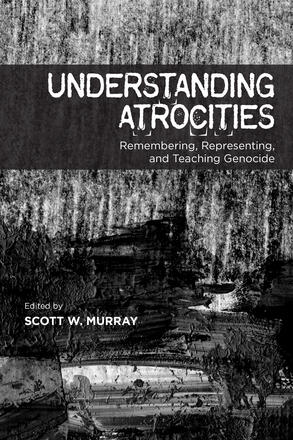
Understanding Atrocities
Remembering, Representing and Teaching Genocide
Description
Understanding Atrocities is a wide-ranging collection of essays bridging scholarly and community-based efforts to understand and respond to the global, transhistorical problem of genocide. The essays in this volume investigate how evolving, contemporary views on mass atrocity frame and complicate the possibilities for the understanding and prevention of genocide. The contributors ask, among other things, what are the limits of the law, of history, of literature, and of education in understanding and representing genocidal violence? What are the challenges we face in teaching and learning about extreme events such as these, and how does the language we use contribute to or impair what can be taught and learned about genocide? Who gets to decide if it's genocide and who its victims are? And how does the demonization of perpetrators of atrocity prevent us from confronting the complicity of others, or of ourselves? Through a multi-focused and multidisciplinary investigation of these questions, Understanding Atrocities demonstrates the vibrancy and breadth of the contemporary state of genocide studies.
With contributions by: Amarnath Amarasingam, Andrew R. Basso, Kristin Burnett, Lori Chambers, Laura Beth Cohen, Travis Hay, Steven Leonard Jacobs, Lorraine Markotic, Sarah Minslow, Donia Mounsef, Adam Muller, Scott W. Murray, Christopher Powell, and Raffi Sarkissian
Reviews
Understanding Atrocities is a welcome addition to genocide and atrocities scholarship that introduces new voices, approaches, and topics to a growing global field of research. The well-chosen chapters are perfect illustrations of the breadth and dynamism of contemporary genocide studies.
-Andrew Woolford, University of Manitoba, author of “This Benevolent Experiment”: Indigenous Boarding Schools, Genocide and Redress in North America
Understanding Atrocities is a welcome addition to genocide and atrocities scholarship that introduces new voices, approaches, and topics to a growing global field of research. The well-chosen chapters are perfect illustrations of the breadth and dynamism of contemporary genocide studies.
-Andrew Woolford, University of Manitoba, author of ?This Benevolent Experiment?: Indigenous Boarding Schools, Genocide and Redress in North America
Understanding Atrocities helps us to think “about how we think about the past,” and doesn’t offer easy passe-partouts for unlocking or framing humanity’s monstrous history and its representation. Instead, this book provides insightful and necessary roadmaps for our encounters with the demonic events themselves, as well as the vectors and exchanges that process our memory.
-Piet Defraeye, University of Alberta, Universiteit Antwerpen